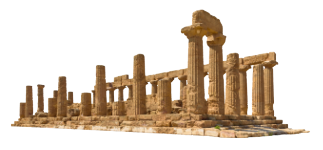Michael began his academic journey at the University of Southampton (1974-1977), where he developed a keen interest in field archaeology, participating in numerous multi-period excavations in the Test Valley. This period also marked the start of his long career in adult education, teaching archaeology and ancient history to lifelong learners.
Alongside his active involvement in archaeological fieldwork, Michael built a successful career in marketing and communications, working across both public and private sectors. His professional path eventually led him to Brussels, where he collaborated closely with the European Union. During this time, he also worked as a tour guide for UK-based specialist operators, leading lecture tours across Greece. It was on one such tour in Crete that he became particularly fascinated by the island's Roman heritage and the threats posed by rapid coastal development. In response, he founded the Colloquium on Post-Minoan Crete in 1995, creating a forum for specialists focused on this critical period. His enduring collaboration with fellow colleagues in this specialist research area has helped raise awareness of the need and opportunities for further research into Hellenistic and Roman Crete.
In 2015, Michael returned to academic study, pursuing an MA at the University of Nottingham, where he focused on the maritime landscape of Crete. He has continued this research at the doctoral level at the University of Leicester. In recognition of his extensive contributions to British and Greek archaeology, he was named an Honorary Fellow at Leicester's School of Archaeology & Ancient History in 2022.
Michael is known for his innovative and unconventional approach to research, articles, and presentations, challenging traditional perspectives and exploring new ways of understanding the past, whilst at the same time raising awareness of the impact to our heritage resulting from urban/commercial development, climate and eustatic change in coastal and inland environments.



